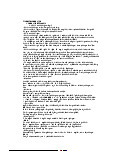



















Preview text:
Page 1 of 31 } GOD, THE UNIVERSE EVERYTHING, AND DERREN BROWN
Copy Right 2005 Vincent Lynch©
This website is updated regularly, the text below is been added to and changed
and time progress's - it is a working progress. By all means, i don't know
everything, this page/book is currently been built with the intention of eventually
been comprehensive. Not all information on these pages belongs to me, i admit its
not my own, advertising or terms and conditions of this agreement between
myself and the author can be discused through my email address.
The music in the background is not my own neither its very good and i recommend
buying it from http://www.amazon.com
This site is a colabration of html, psychology, information, misdirection and
suggestion no actors or stooges are used in its posting, enjoy!
The contents of all material available on this World Wide Web site are copyrighted by the Vincent
Lynch unless otherwise indicated. Copyright is not claimed as to any part of an original work prepared
by a U.S. or state government officer or employee as part of that person's official duties. All rights are
reserved and content may not be reproduced, downloaded, disseminated, or transferred, in any form or
by any means, except with the prior written agreement of Error265@hotmail.com or as indicated below.
Users may download pages or other content for their own personal use on a single computer, but no part
of such content may be otherwise or subsequently reproduced, downloaded, disseminated, or transferred,
in any form or by any means, except with the prior written agreement of and with express attribution to Vincent Lynch. GO TO FORUM
file://C:\Documents%20and%20Settings\Admin\Desktop\desktop\backupsite\main2.html 1/11/2006 Page 2 of 31
READ THE TEXT BELOW AND THINK OF A SINGLE SHAPE FROM THE
CHOICE OF SHAPES, I WILL TRY AND PREDICT THE SHAPE YOU THINK OF! SEALED ESP SHAPE EXPERIEMENT
Pick the right shape: Online experiement {: o )-|---< - Once you've choosen scroll
down for my response to the shape - to see which one i hoped you'll pick!
Anyway now around the grid ive set up some shapes i want you to pick a single
shape but not the one ive curved you to pick throughout my whole presentation of
the shapes themselves, now i want you to try and catch me out - because ive found
ways too catch you out with my shape placement, i know theres little infinity that i
will catch you out, but i'll give it a good try, so look at the shapes, See i Remember
Countless Limits, Emounts to only new ways to round down peoples responses, but
i'm only playing a trick, its a little trick, just to hit the nail on the head and say look
i'm clever and a singular intellectually complete young person, not a plump-ous
man but you are Open-minded enough to come to this website, i HOPE YOU'LL
AGREE THAT IVE MADE THIS FAIR AND SQUARE, I WOULDNT LIKE TO
file://C:\Documents%20and%20Settings\Admin\Desktop\desktop\backupsite\main2.html 1/11/2006 Page 3 of 31
CROSS OFF ANY OF YOUR CHOICES.............NOW REMEMBER THAT SHAPE!
CLICK HERE TO DISCOVER THE SHAPE I WANTED YOU TO PICK!
Thankyou for participanting, i hope you were pleased by the results, and you'll
probably find that if you didnt have that answer in the end you thought of it quite
strongly throughout your deciding, anyway thankyou
Five proofs of God's Non-existence
1. God is perfect, So any internal/external change is therefore less than perfect, therefore God
cannot change, Nor can he think (because thought requires change) he is just a enternal
everything where nothing changes just the same.
2. Suppose somehow my previous argument about God not been able to think is somehow
defeated, Then he must have had every thought about everything ever to have happened and
still to happen in the instant he became God, But God is enternal so either he never had those
thoughts (about anything and everything) or he always has those thoughts not in a cycle but a
constant view, he is a spectator with no control because he cannot change anything to gain
control. If the world was created by God then God created it to achive perfection, but as God is
everything it stands to reason that God wasnt perfect before he created the earth because he
created the earth to achive perfection thus he was not perfect and thus not God nor eternal!
However someone could argue that he didnt actually create the earth its a metaphor for the
universe, however the argument still stands (shall not explain its self-evident if you re-read)
file://C:\Documents%20and%20Settings\Admin\Desktop\desktop\backupsite\main2.html 1/11/2006 Page 4 of 31
3. assuming my first two arguments are somehow defeated; God used his intellect to create
the world/universe therefore his intellect must be abstract from the world as we been the world
have no access to God's intellect, i.e A sciencetist may look out onto space and say "i see no
evidence of God" and the theologist may reply "thats because God is above/outside our
universe looking in" but the contradiction lies ahead, how can one look into/affect the
world/universe with forces that are abstract/non-existent in the world/universe. Its like me trying
to use a microscope in a light-proof room.
4. If God is perfect, And God is everything even right now, Then the world is perfect right now,
and the universe is perfect in all time to come else otherwise God (been everything) would not
be perfect, Thus there would be no need for the Judgement Day, and if there was a need, then
Judgement day would have to be today else God (been everything) wouldnt be perfect today and thus not God.
5. Morality, if God is equal to morality then God can't exist (P1) If God exists, then God is
omnipotent. (P2) If God is omnipotent, then God has free will. (P3) If God has free will, then it
is logically possible for God to perform some morally unjustified action. (P4) It is not logically
possible for God to perform some morally unjustified action (i.e., there is no possible world at
which God performs a morally unjustfied action). (C1) So, God does not have free will. [by P3
and P4] (C2) So, God is not omnipotent. [by P2 and C1] (C3) So, God does not exist. [by P1
and C2] Understanding P3 correctly seems, to me, to be the central problem for formulating
this argument. Philosophers have argued that in order for God to have free will and for his
having free will to not be a problem for his omnibenevolence, the following conditions must
obtain: (a) it is logically possible that God performs a wrong (morally unjustified) action and (b)
God in fact never actually performs any wrong (morally unjustified) action. And to deny that
omnipotence entails free will just seems mistaken.
However one may simply drop their thelogy point of view at this point and adopt Pascal's
wager, it will soon become clear why exactly one might adopt this position as one reads on
throughout the book, in particular paying attention to the sections relating to psychology.
Nonetheless beside the talk on psychology one may claim although he accepts his position
perhaps because of his psychological make-up it still doesnt make the argument falliable,
Pascal for all those who don't know about the wager said that its better to belive in God,
because if it turned out he didnt exist you havent lost anything, and if he did exist then you
would live happily in enternity forever. This argument has little ammunition i'm actually
ashamed i mentioned it, but i suppose to be definitive i have no other choice.
IF GOD DOESNT EXIST, THEN HOW ABOUT JESUS!!! - Little of the below actually
belongs to me, it was within the public domain, from well respected websites wrote by
christians and jew's also from dictionary's, no information has been bent or distorted, its just
been put togther from various gospels and dictionarys to support a hypnothesis, the information
is so suportive, that the hypnothesis seems self-explainitory, the hypnothesis been - Jesus was a Hypnotist. Jesus Who?
file://C:\Documents%20and%20Settings\Admin\Desktop\desktop\backupsite\main2.html 1/11/2006 Page 5 of 31
He is commonly referred to as Jesus Christ, although Joshua would be a more accurate
translation of his first name. "Christ" is not his last name; it is simply the Greek word for
"Messiah," or "anointed one." Theologians have discovered about 50 gospels which were
widely used by Jewish, Pauline and Gnostic groups within the early Christian movement. Only
four of these were chosen by the surviving group, Pauline Christianity, and were included in
the Bible. Those four Gospels describe Jesus as a Jew who was born to a virgin in Palestine
circa 4 to 7 BCE. He is portrayed as a rabbi, teacher, healer, exorcist, magician, prophet, and
religious leader who had a one year (according to Mark, Matthew and Luke) or a three year
(according to John) ministry in Palestine, starting when he was about 30 years old. Most
Christians believe that he was executed by the Roman occupying army, visited the underworld,
was resurrected, spent 40 days with his disciples, and then ascended to heaven. Most
Christian denominations view Jesus as God, and as the Son of God, the second person in the Trinity. Jesus Was a Hypnotist
Both the New Testament and the Sepher Toldos Jeshu agree that Jesus
returned to Judea after his stay in Egypt. The Gospel of Matthew says that he
remained in Egypt until after the death of Herod, so that the prophecy might be
fulfilled: "Out of Egypt have I called my son." The Sepher Toldos Jeshu reports
that he returned to Judea after King Janneus had ceased his persecution of the
Initiates. But the Jews, knowing of his experiences, complained bitterly against
him, declaring that he had discovered the secrets of their Temple and was
profaning them by giving them out to the common people. Jesus, however, was
not disturbed by these accusations, and so, according to the Gospel of Matthew:
Matthew's gospel records that Mary, Joseph, and the child Jesus escaped King
Herod's massacre of infant boys by fleeing to Egypt. What happened next? Little
information on the Holy Family's flight remains, but ancient noncanonical texts
called the Infancy Gospels offer fascinating speculations. These texts, along with
stories accepted by Egypt's Coptic Christians, tell of a pint-sized Jesus working
wonders during his stint as a refugee.
The people who fled from Herod's Massarce, a family of which been Jesus, Mary,
and Joseph, probably took refuged in the temples of Egypt AKA Egyptian Sleep
Temples or Egyptian Hypnos Temples like many fleeling families did.
Hypnosis, suggestion therapy can be traced back over 4000 years to ancient
Egypt. The Egyptians used healing sanctuaries to heal people with all sorts of
problems, both physical and mental, most of which today would be classed as
psychological problems. These healing sanctuaries were called "Sleep or Dream
Temples." In these temples, the sick person was put in to a trance like sleep;
priests and priestesses then interpreted the person's dreams to gain knowledge
about the illnesses and to find a cure for the illnesses.The tradition of temple
sleep dates from the time of Imhotep. The ancient Egyptians worshiped the priest
Imhotep and dedicated Sleep Temples to him; he is the earliest known physician.
He was the physician vizier, architect and priest, to the pharaoh Zoser (2650 -
2590 B.C.). Imhotep built the step pyramid, which is the first pyramidTemple
sleep was used as a psychotherapeutic tool; the temples of Imhotep were well
attended by people looking for psychological help. Under the influence of
file://C:\Documents%20and%20Settings\Admin\Desktop\desktop\backupsite\main2.html 1/11/2006 Page 6 of 31
incantation and the performance of religious rituals, sick people were prepared
psychologically for suggestion therapy; they were put in to a "hypnotic state."
Before falling asleep they were influenced by suggestions, in the hope of
provoking dreams sent by the gods.JESUS had been driven out of Judea in his
early youth because of his initiation into the secret wisdom of Israel. During his
stay in Egypt he had augmented this knowledge through his initiation into the
Egyptian Mysteries. This initiation had proved to him that the secret wisdom of
the Jews and the Egyptians was identical. As Eliphas Lévi says: "He had divined
the occult theology of Israel, compared it with the wisdom of Egypt, and found
thereby the reason for a universal synthesis." But as Jesus' mission was
particularly to the Jews, it became necessary for him to return to his native land
as soon as possible, in order to carry on his chosen work.
Hypnosis was often used as a method of talking to God and Curing people
(sound familar - cough* Jesus *cough*) - The Eypgians had sleep temples where
they would put people into Hypnosis to talk to God and to be cured by the priests
- if a christian used Hypnosis to talk to God these days he would be told by his
own church that God doesnt work like that.
I think it needs to be remembered that Jesus was a product of his times. Jesus
and his disciples discussed quite openly and quite candidly many of the issues
that prevailed during that day. Two of those issues were reincarnation, and the
law of karma. Some of what Jesus said about those issues survives in the King
James version of the Holy Bible. Some of what he said about those issues was
deliberately cut out, during the councils starting at Nicea in 325 AD, and running
to the fifth council of Constantinople in 553 AD. It must be recognized that these
councils made major "adjustments" to the original teachings, and established the
religious beliefs doctrines and dogmas of today's Christian Church. It wasn't until
553 AD that reincarnation and the pre-existence of the soul was determined to be
one of the "15 Anathemas Against Origin", in other words, not a teaching of the
Christian church. That's 550 years after Christ died, that it was decided that
reincarnation would not be a part of the Christian religion, and again I emphasize
it was a close vote according to records. It was then that much of what Christ had
to say about reincarnation, was cut out of the written documentation. (Interesting
in that if you only have one shot at heaven, you are more likely to toe the mark,
set by the authorities, and be a docile set of followers, as opposed to people who
have infinite numbers of chances. Hummmmmm!) I'll leave it to you as to whether
Christ knew what he was talking about, and meant, what he said, or whether
those fellows 550 years later knew better. You can find some indication of Christ
beliefs about reincarnation and karma in his discussions with his disciples in the
KJV of the Holy Bible when he talks about Elias being John the Baptist, and
when his disciples asked him about who had sinned, when they saw a man who
had been blind from birth. In both cases the disciples were asking direct
questions about reincarnation, and karma, because they were common accepted
religious belief that the time. To find more direct information about what Jesus
had to say, you have to look at the books that were deliberately cut out, of the
holy Bible, and you have to go to the ancient writings that have survived despite
the church, such as the Dead Sea Scrolls and others.
Magic and the Magi - 3 of which been the wise men (Assuming that ever really happened
file://C:\Documents%20and%20Settings\Admin\Desktop\desktop\backupsite\main2.html 1/11/2006 Page 7 of 31 in the first place)
Magical beliefs and practices are common in many cultures and religions. The word magic
comes from the beliefs and practices of the Magi (singular, Magus), Persian priests and
scholars, followers of Zoroaster, who were credited by the classical world with mastery of
astrology and other arcane arts.
Whereas the Persian magi were believed to use Agate stones to influence the weather, the
contemporary muslim is encouraged to wear the Agate ring for protection and longevity,
among other benefits. And whereas weavers of flying carpets are written to have been
persecuted in medieval Persia [2] the presence and even ability to communicate with genies
("jinn" in the Qur'an) is openly acknowledged.
He came and dwelt in a city called Nazareth; that it might be fulfilled
which was spoken by the prophet: He shall be called a Nazarene.
In those days a Nazarene meant something far more important than an inhabitant of the city of
Nazareth. The word Nazar is an ancient one, and is found in many languages. The Nazars
were the Magi, or Wise Men; their great prophets were initiated members of that Fraternity of
Adepts known to every Theosophist, their doctrines re-statements of the ancient Wisdom-
Religion. These Nazars lived in Judea long before the time of Moses. They had built the
ancient city of Nazara, where they held their secret rites of initiation. In Jesus' time the name of
the city had been changed to Nazareth, and it was evidently to this city that Jesus repaired.
There he continued his study of the Chaldean Secret Doctrine, compared it with the wisdom of
Egypt, found further proofs of their identity, and began his work of synthesis. Hypnosis in literature
There are many examples of phenomena reminiscent of hypnosis in classical literature. It is
file://C:\Documents%20and%20Settings\Admin\Desktop\desktop\backupsite\main2.html 1/11/2006 Page 8 of 31
well -known, for instance, that the philosopher Socrates had a tendency to enter spontaneous
cataleptic trances, in which he was gripped by contemplation of his inner psyche (nous). The
best account of this is found in Plato's Symposium where Socrates freezes in deep meditation
en route to a drinking party (the 'symposium' of the title). The host Agathon, and the other
guests, are left waiting; a slave is sent and returns reporting:
I Myself have read quite a bit of Greek Litature, long before Jesus was born, all
with no mention of Moses, the 10Commandments, and other christian
beliefs/ideals that were supposed to have happened 1000's of years before
Jesus, But Someone may argue thats because in-fact they didnt have the
communication back then like we have now - well done you've made a valid
point, but look at the evidence listed on this screen, quotes from the bible and
gospels all listing that the world was been taking over my new concepts of trance
and hypnosis all were communicated rather quickly between continants but infact
somehow a message from God didnt get commincated.
Quoted From some of Plato's Book's! 4000 bc - LONG BEFORE JESUS, LONG AFTER MOSES ('apparently'!)
"Socrates is here, but he's gone off to the neighbour's porch. He's standing there
and won't come in even though I called him several times."
Agathon gives the order, "Go back and bring him in!" but Socrates' companion, Aristodemus, objects:
"No, no, leave him alone. It's one of his habits: every now and then he just goes
off like that and stands frozen, wherever he happens to be."
Socrates eventually arrives when the meal is halfway finished, at which Agathon chides him:
"Socrates, come lie down next to me. Who knows, if I touch you, I may catch a bit of the
enlightenment (sophia) that came to you under my neighbour's porch. It's clear you've seen the
light. If you hadn't you'd still be standing there!"
Despite his age, Socrates appeared to be hardier and tougher than any other soldier. He
walked barefoot on ice, and in bitter cold wore only the customary grey, light cotton cloak of
the ancient philosophers. When supplies were lost he seemed impervious to hunger. He
wasn't partial to drink, but he could drink any man under the table, seemingly unaffected by
alcohol. We are also told that several times when Athens was rife with plague, Socrates was
the only citizen unaffected by illness.
Socrates was, in earlier years, a man of physical prowess, and fearless during the thick of
combat; the ancient historian of philosophy, Diogenes Laertius, reports his rescue of the
soldier and author Xenophon, who later became his disciple and founded one of ten distinct 'Socratic' sects in Athens,
He paid great attention also to the training of the body, and was always in
excellent condition himself. Accordingly, he joined in the expedition to
file://C:\Documents%20and%20Settings\Admin\Desktop\desktop\backupsite\main2.html 1/11/2006 Page 9 of 31
Amphipolis, and he it was who took up and saved Xenophon in the battle of
Delian, when he had fallen from his horse; for when all the Athenians had fled, he
retreated quietly, turning round slowly, and watching to repel any one who attacked him.
Alcibiades seems to be referring to this incident when he remarks,
"…in the midst of battle he was making his way exactly as he does around town,
'with swaggering gait and roving eye.' He was observing everything quite calmly,
looking out for friendly troops and keeping an eye on the enemy. Even from a
great distance it was obvious that this was a very brave man, who would put up a
terrific fight if anyone approached him."
These are examples of the exceptional physical and emotional self-mastery (enkrateia)
attributed to many classical philosophers. (What a contrast with modern academics!)
Alcibiades deliberately links this discussion of Socrates' self-control to a further example of his deep meditative trances:
"So much for that! But you should hear what else he did during that same
campaign, 'The exploit our strong-hearted hero dared to do.' One day, at dawn,
he started thinking about some problem or other; he just stood outside, trying to
figure it out. He couldn't resolve it, but he wouldn't give up. He simply stood
there, glued to the same spot. By midday, many soldiers had seen him, and,
quite mystified, they told everyone that Socrates had been standing there all day,
thinking about something. He was still there when evening came, and after
dinner some Ionians moved their bedding outside, where it was cooler and more
comfortable (all this took place in the summer), but mainly in order to watch if
Socrates was going to stay out there all night. And so he did; he stood in the very
same spot until dawn! He only left next morning, when the Sun came out, and he
made his prayers to the new day."
The significant story of Moses starts with a murder. He sees an Egyptian hitting a Habiru.
Habiru is the name given by the Egyptians to the scattered nomadic tribes that inhabited the
land. And after looking around, to be sure no one else is looking, he kills the Egyptian.
Unfortunately the crime was witnessed by other Habiru, who reported the incident to the
Egyptians, so Moses became a wanted man. He went on the run, heading east into the Sinai
where he was taken in by the Midianites, and where he married the King's daughter Zipporah.
It was here that Moses was introduced to the god of the Midianites tribes, a god of storms and
of war, whose symbol was a crucifix like motif, worn on their fourheads; it later became known
as the ‘Yahweh’ mark. This god who lived in the mountains, provided the inspiration, and
central theme for the god of the Jews, following Moses's conversations with him on Mount Horeb.
Gods rarely, if ever, spontaneously pop into existence. They develop naturally and undergo
metamorphosis as they absorb qualities transposed from other deities. The first recorded
meeting with the god of the Jews and Christians seems strangely cold and threatening. When
Moses inquired about His credentials, and ask for his name, Moses was being very smart; but
it did not work. Moses knew, from his Egyptian upbringing, that gods were not always superior
to humans, and if a man could extract the name of a god, he would have power over him. In
file://C:\Documents%20and%20Settings\Admin\Desktop\desktop\backupsite\main2.html 1/11/2006 Page 10 of 31
Egypt, gods usually had many names, ranging from a common, widely known one, to
increasingly restricted names, but their fundamental designation was given to no man or other
god. If Moses had received the answer to his question, regarding this god’s principal name, he
would have effectively enslaved the god.
Theology and magic have always been totally synonymous concepts until relatively recent
times, when we have managed to draw an imaginary line, between the two halves of primitive
human mysticism. The concept of the god of the Israelites living in his ark, is no different to a
genie living in his bottle, granting wishes to his friends; both indulge in such activities such as
flying thru the air, dividing whole seas, sending out fireballs and generally ignoring the laws of
nature. Today we maintain a frail mental separation, between the stories of the Arabian Nights,
and those of the Bible, but there is no doubt they share common origin. It will be hard for many
people to accept, but if we take what the Bible says; at face value, the creator figure, whom the
Western world calls simply “God”, started out as a humble genie, living on his wits in the
mountains of Northeast Africa and Southwest Asia.
The book of Exodus tells us that god’s reply to the question of his name was: ‘Ehyeh asher ehyeh.’
This is usually translated as "I am who I am" but in the parlance of the authors of the work, this
carried a stronger import, and would be better rendered as "mind your own damn business!
The names Yahweh or Jehovah are both modern pronunciations from the Hebrew description
of God as YHWH (the Hebrew language has no vowels). This was not god’s name; more likely
it was a title, taken from the given answer, meaning ‘I am.’
According to the Bible story, Moses eventually returns to Egypt to release the bands of
assorted Asiatics whom the Egyptian’s called Habiru from slavery, supposedly using the
powers of his new storm jinn/genie/god to bring misery and death to the unfortunate Egyptians.
We are told that 600,000 Israelites left for a forty-year journey through the desert, but it is clear
to every intelligent observer, that any such exodus could have only involve a fraction of this
number. There is no trace of such an event in Egyptian history, had the group really been this
size, they would have represented a quarter of the entire population of Egypt, the Egyptian's
certainly would have recorded it’s social impact.
Nonetheless, whatever the number, Moses then took his people into the Sinai back to the
Midianite’s encampment and greeted his father-in-law Jethro who congratulated the Israelites,
and gave wise advice to Moses, "Get yourself some legitimacy!" The prophet then went back
up the sacred mountain, for a meeting with the god, who still lived there. The god then
informed his new followers, that they were required to worship him, or he would take
vengeance not only on the individuals concerned, but on their children, grandchildren and
beyond. He went on eventually, to inform his new followers, that he was a jealous God, and
that he must be considered first among gods. Note: He did not say he was the ONLY god, but
just that he must be considered first.
Whatever the route taken, the biblical story of the exodus clearly demonstrates that the group
led by Moses was highly Egyptianized and the worship of Egyptian deities was normal
practice. Moses’ receiving the ten Commandments on tablets of stone was absolutely
necessary to mark the establishment of the new state. Every king had to be given his Royal
charter from the gods as proof that he was fit to lead, and that there was a basis for law and
order in the new society. Jethro's advice was spot on.
These tablets could only have been written in Egyptian hieroglyphics as Moses would not have
understood any other script. Because today we rely on the written word, on a daily basis, is
file://C:\Documents%20and%20Settings\Admin\Desktop\desktop\backupsite\main2.html 1/11/2006




